"They send pdf invoices by email,
we receiving them as e-invoices"
Renewi made the switch to e-billing with the help of 4Exchange. The waste processor now receives all invoices as e-invoices.
![]()
Total outsourcing
4Exchange works in the middle of your invoice flows. Every incoming invoice is converted to your standard (many to one) and every outgoing invoice to that of your customers (one to many).
Quality of invoices
In addition to converting invoices, we validate them based on master data sources. Supplier recognition, for example, is set up by IBAN and VAT numbers.

"They send pdf invoices by email,
we receiving them as e-invoices"
Renewi made the switch to e-billing with the help of 4Exchange. The waste processor now receives all invoices as electronic invoices.
GOVERNMENT
E-invoicing mandatory
Especially at billing , the role of governments worldwide has increased significantly in recent years, including in Belgium. Governments not only want electronic invoices receiving, but increasingly also ask for the invoices that companies send to each other, this because of tax registration (see Continuous Transaction Controls). We are closely monitoring international developments and adapting our services accordingly. As of Jan. 1, 2026, e-billing is mandatory for the private sector.
This event has passed!
00
days
00
hours
00
minutes
00
seconds
About Electronic Invoicing
On our Future Finance video channel, we share some of our opinions and experiences.
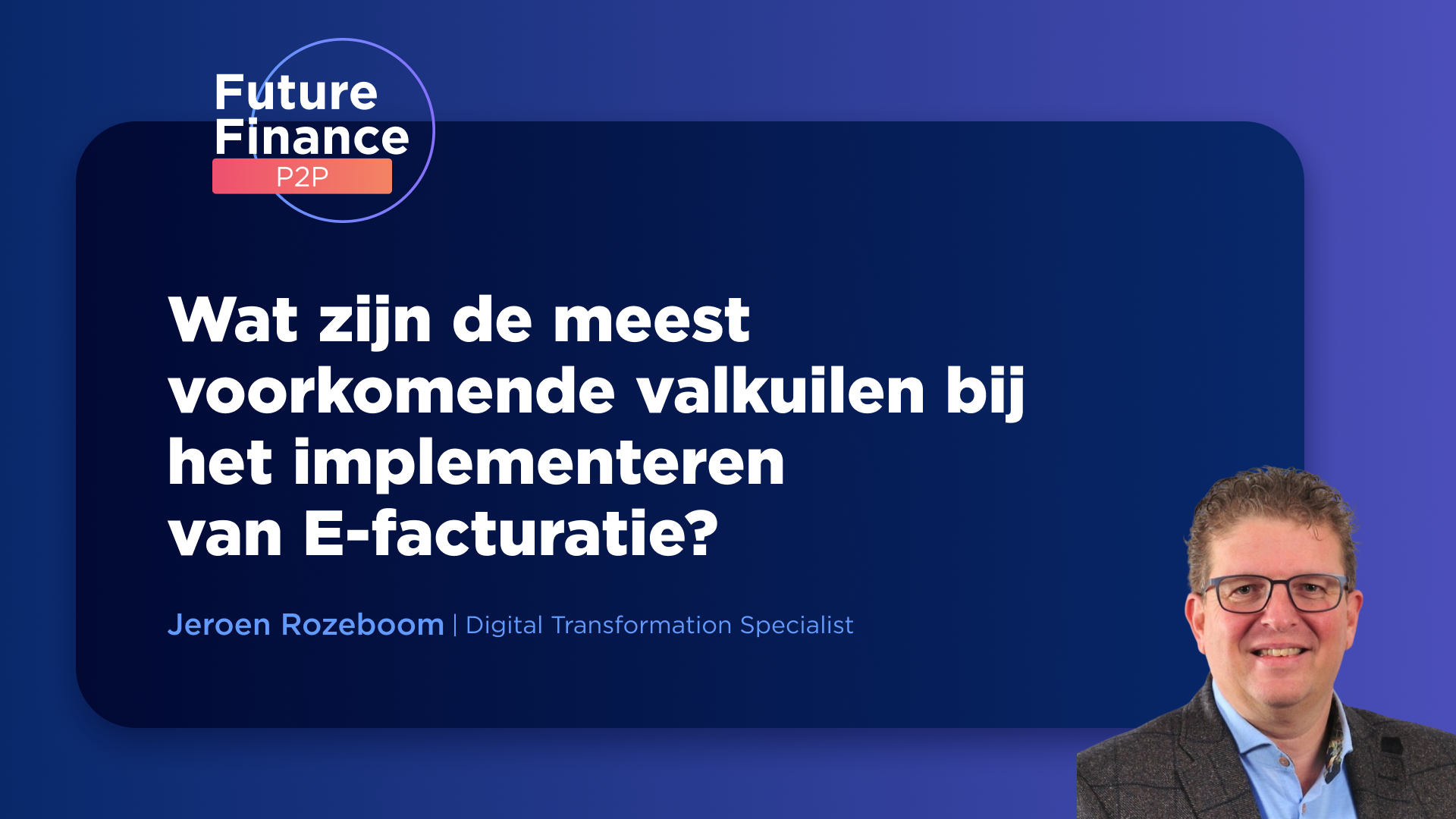
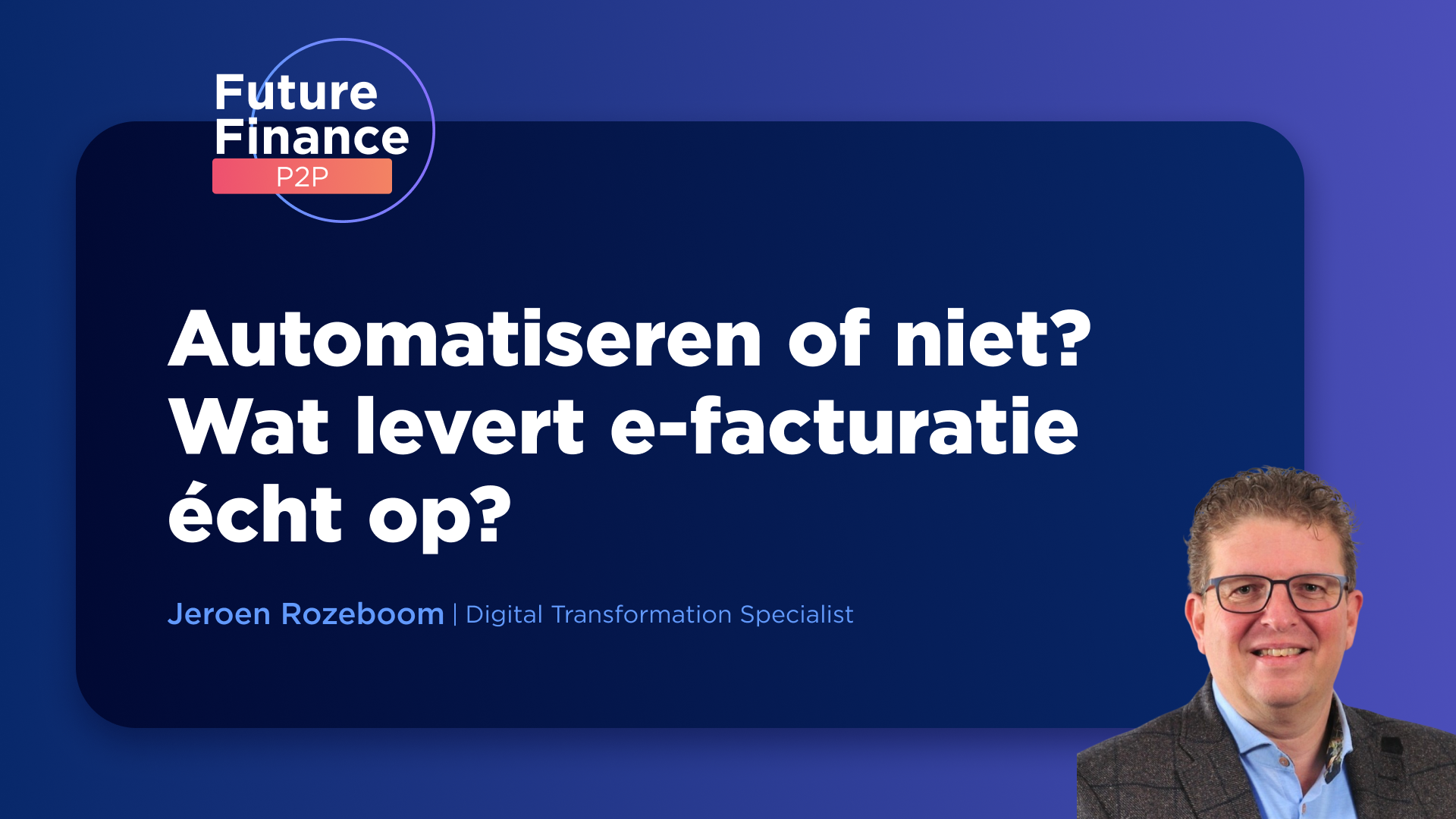
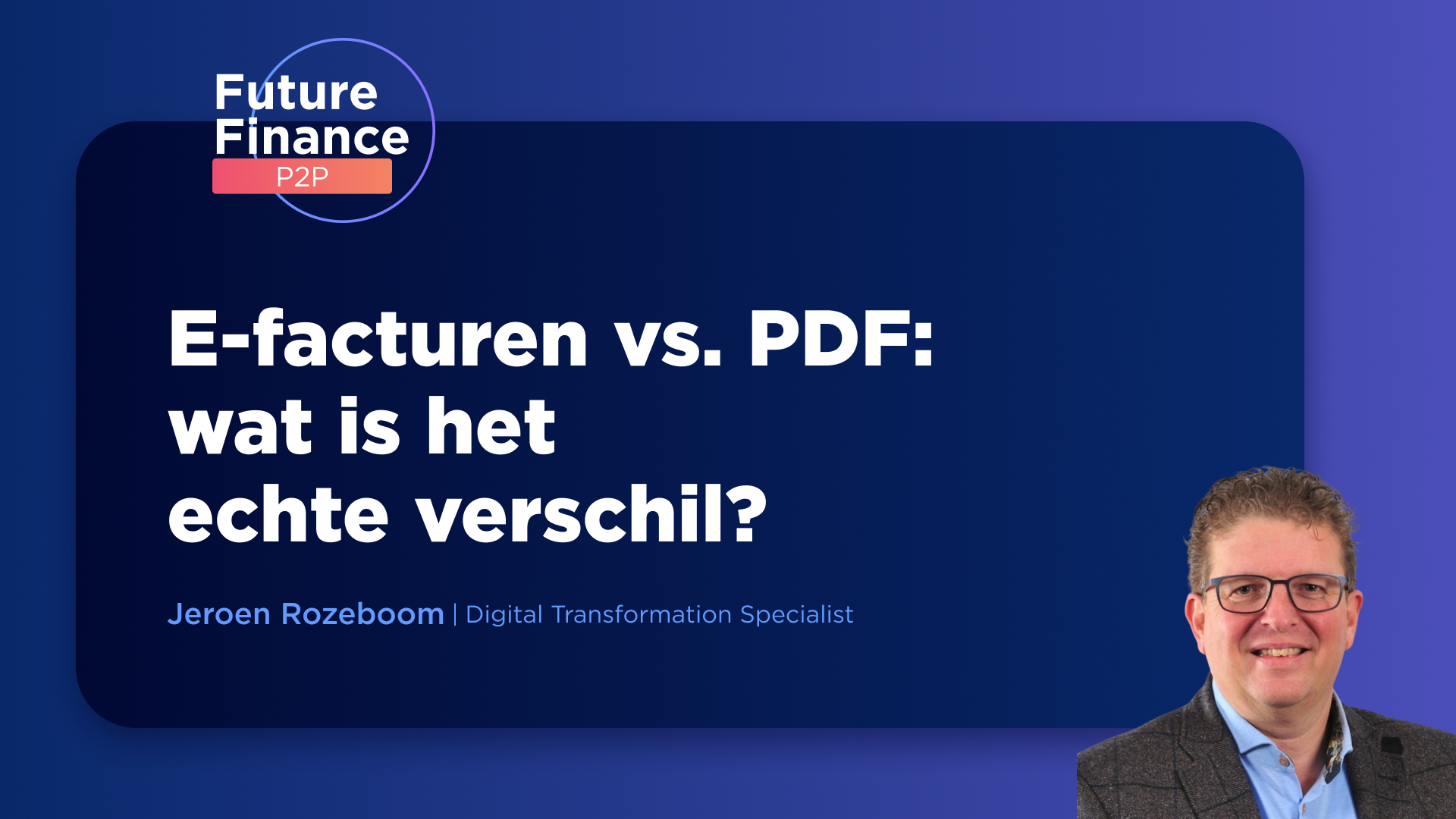
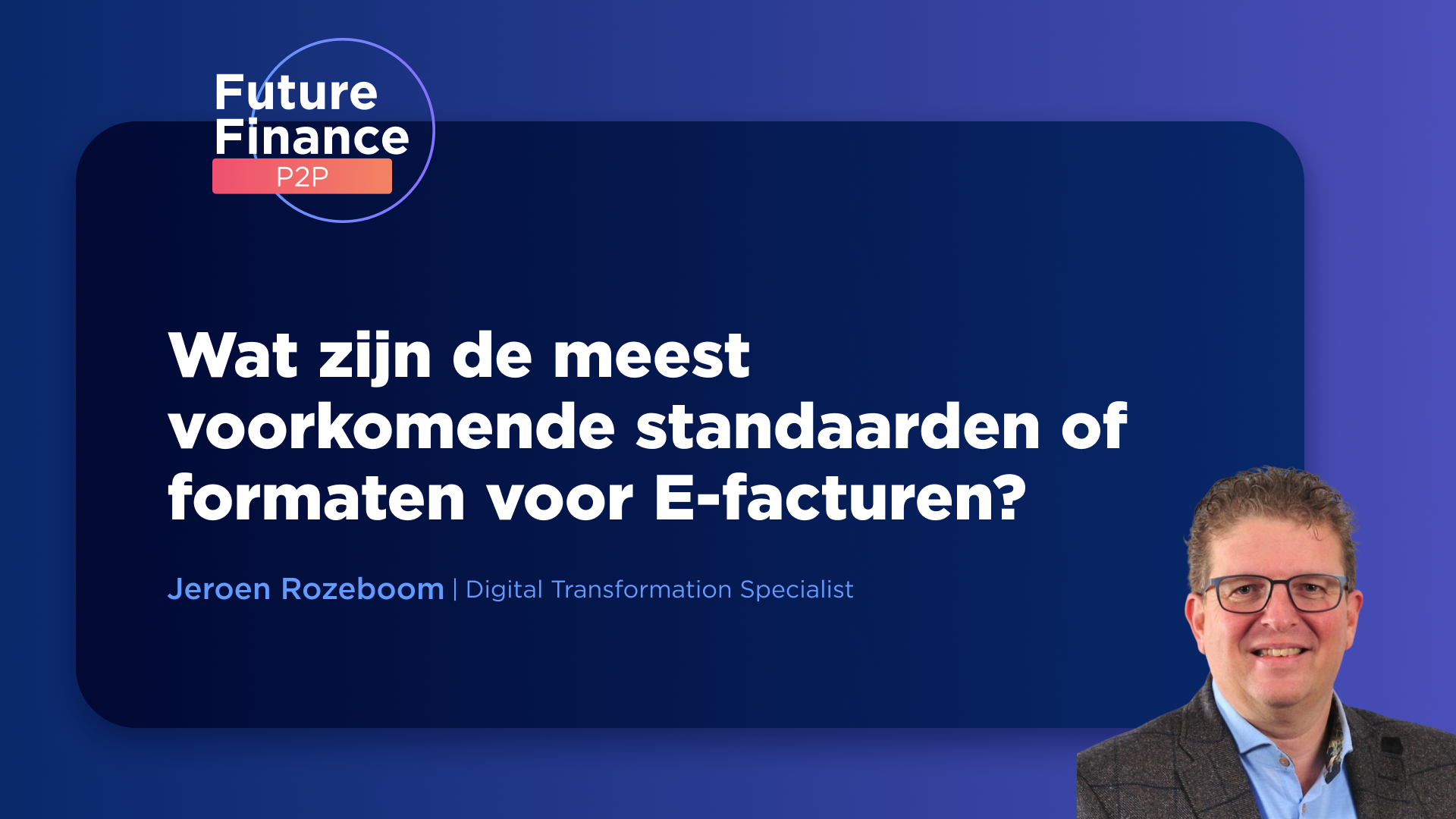
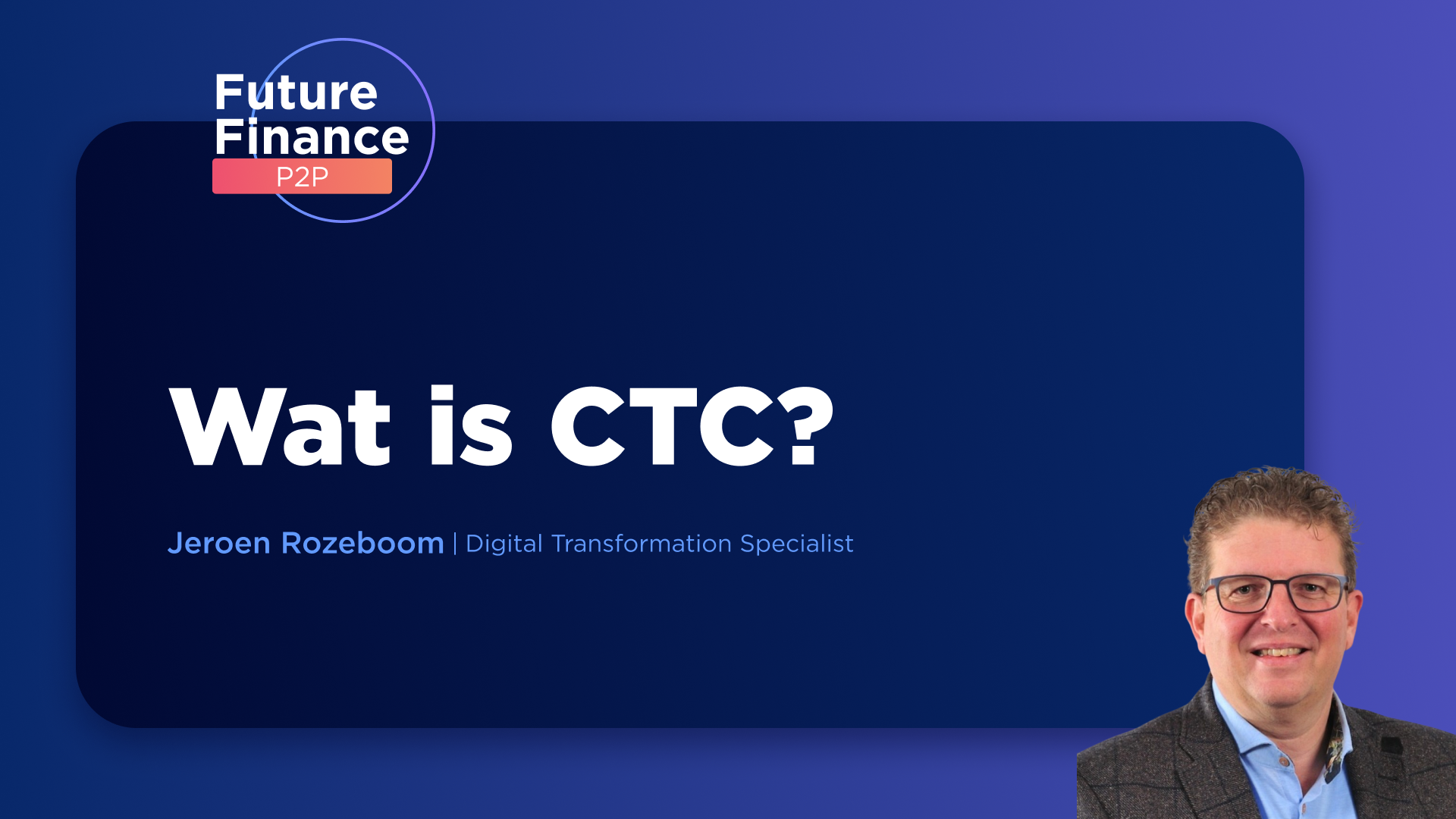
Electronic billing is the automated transmission of structured electronic invoices from one automated system to another, where they can be processed without human intervention.
This includes not only invoices, but also other documents such as delivery notes and orders, which are automatically exchanged between supplier and customer systems.
An electronic invoice is a structured digital data file that stores invoice data in a fixed location.
When using the Peppol standard, invoice data is stored in a specific location within the XML structure of the file. This standardized location allows electronic invoices to be processed automatically in the records without the need for manual intervention.
Electronic billing offers numerous advantages, especially for companies in Belgium, where the administrative burden is significant. By switching to electronic billing , companies can reduce administrative burdens and operate more efficiently. This means spending less time and money on manual processes, such as entering paper invoices into accounting systems. In addition, electronic billing can reduce the likelihood of errors, leading to more accurate financial data and potential long-term cost savings.
In Belgium, the cost of administrative burdens on businesses in 2022 has been estimated at €5.99 billion, so moving to electronic billing can make a significant contribution to reducing these costs and improving the overall efficiency of business processes.
Digital PDF invoices are considered "static images" that provide a consistent view across devices. They require manual processing and are not directly editable or automatic. With e-invoicing, such as e-invoices, structured digital documents, such as XML or EDI formats, are used that can be processed automatically by financial software. This means that data is entered directly into the system without human intervention.
Unlike digital PDF invoices, which must be processed manually and often lead to errors and delays, e-invoicing increases accuracy and cuts processing time financial processes.
Peppol is a European network used for digital billing between companies. It provides a standardized and automated way to exchange electronic invoices, increasing efficiency and reducing administrative burdens. Minister Van Peteghem has announced that from Jan. 1, 2026, structured electronic invoices will become the norm for transactions between taxable companies in Belgium.
The government has chosen to use the European Peppol network for this digital billing. This network provides automatic connection between participating companies, making the exchange of electronic invoices easier.
The Mercurius platform is a digital platform used to exchange electronic invoices between companies. It enables taxpaying companies to send structured electronic invoices securely and efficiently and receiving The platform is designed to simplify administrative processes and increase efficiency through the use of digital billing. Minister Van Peteghem has emphasized the importance of digital billing as a means to reduce the VAT gap and reduce administrative burdens.
The Mercurius platform is one of the digital solutions used to achieve this goal. By using Mercurius , companies can streamline their billing processes while meeting European standards for digital billing.
Electronic billing is currently not mandatory in Belgium for transactions between taxable companies, but developments are underway that could change this. Minister Van Peteghem has reached an agreement in the Council of Ministers on the mandatory introduction of digital billing between companies as of Jan. 1, 2026. This initiative is being taken to narrow the VAT gap and reduce the administrative burden. The government will provide a generous transition period to allow businesses to adapt to this new way of working. During this transition period, there will also be a broad information campaign to inform all stakeholders of these changes. Although electronic billing is not currently mandatory, it is increasingly being promoted as an efficient and effective way to improve business processes and promote tax compliance.
If you want to get started with electronic billing, there are some steps you can follow to ensure a smooth transition. First, it is essential to verify that your organization is ready for electronic billing and that your financial systems are compatible with the required standards. Next, sign up to the Peppol network, a secure and reliable platform for exchanging electronic invoices with other organizations, including government agencies. The Peppol network offers a plug-and-play solution that can be seamlessly integrated with your existing ERP or financial systems. In addition, you can benefit from support from service providers such as 4Exchange, who can guide you through the process and ensure that your transition to electronic billing goes smoothly.
Why 4Exchange
We have been engaged in digitizing and standardizing invoices for 25 years. Over the years, our services have greatly expanded to include e-invoicing networks, Peppol, VAT compliance, data validation and other transaction-related documents.


